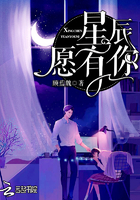“You’re funny, Mom.” He said, his eyes sparkling. We both climbed into the cab of the pickup truck, where other hearts ambushed us. Stuck to the steering wheel was a heart. Another one was on the rearview mirror, on my truck key, on the stick shift, and on my wallet. All compliments of my heart happy husband.
I peeled the hearts from my glasses and handed them to Cody. He stuck them carefully on his own glasses and smiled the whole way to school.
I parked in front of his school.
“Get your book bag, sweetie.” I said.
“Mom, can I wear my hearts to class?”
I debated it for a moment. Pulling a “stunt” like this could go either way. But the pleading in his eyes sealed it for me. How could I deny him what may turn out to be a fun opportunity?
“I don’t see why not, big boy.”
I placed two hearts on my own glasses, and together we entered his school, hand in hand, parting the crowd in the hallway on our way to his classroom.
“Ha! Look at Cody Oliver! He’s got hearts on his glasses!” One observer called out.
“Oh, look at Cody! How cute!” Shouted another, pointing and giggling.
Cody smiled shyly, gripping my hand for dear life.
When we arrived at the doorway, classmates gathered around my little guy, while I saw him trying to shake off the biggest grin I’d ever seen on his face.
“That’s neat! Hearts on your glasses!”
“Cody, can I try them on?”
One little girl tugged at my sleeve. “Mrs. Oliver?”
“Yes?”
“I wish I had glasses.”
I knew then without a doubt that Cody’s outlook was back on track.
Just by having hearts in his eyes.
科迪出生时仅仅24盎司。
因为是极度早产,我们的儿子做了眼部手术以防止失明。手术结果是,他失去了右眼的周边视觉。右眼近视就意味着他终身都需要戴眼镜,终身都需要有眼科专家的密切监察。
相对于失明,我们认为这点代价实在是微不足道。
科迪极为骄傲地戴上了眼镜,那种骄傲劲让他的弟弟们一眼就能看出:爸爸、妈妈都戴眼镜,而他们却不戴,简直有点不像话。于是弟弟们时常轮番恳求也要戴眼镜,否则不公平嘛。
转眼该上幼儿园了。
有一天课间休息时,两个小男孩彻底摧毁了科迪对戴眼镜所抱有的自豪感。一个男孩说,科迪,你的眼镜看上去好蠢。而另一个竟猛地把科迪的眼镜摘下,把它弄弯。
科迪个头小,生性腼腆。他回家跟我们说起这件事时,眼泪直在眼睛里打转转,我们的心里好难受。
但就在最近,有件事改变了他对眼镜的看法。
那是情人节的早晨。闹钟一响,我赶紧按住,然后在黑暗中摸索着找到我的眼镜。我戴上眼镜,没有开灯,摸黑走进卫生间。轻轻按下卫生间的电灯开关,我才明白过来为什么卧室是那样出奇地黑暗。
我先生斯蒂芬,在我的眼镜片上分别贴了两个红色心形贴画。而在我们卫生间盥洗池上方那些大小不一的古董镜子上也都贴满了红心。
“亲爱的,我这么地爱你!”我先生在一面镜子上潦草地写道。
在一面镜子上画有一只伸直的胳膊,手指向西边。而另一面镜子上也画有一只伸直的胳膊,手指向东边。瞅着镜中的自己,我使劲忍住不笑出声来,怕弄醒丈夫和孩子。
我也在镜子上写下了我的回复:“谢谢你,亲爱的。我的眼里满是心!”
在给科迪穿衣服准备去学校时,他低声说:“妈妈?”
“嗯,我的大男孩?”我低声应和。
“你眼镜上有红心。”
“没错,有啊。”
“你真有意思,妈妈。”他说了句,眼里放着光芒。我们俩钻进小货车的驾驶室里,又有好多心将我们包围。方向盘上贴有红心,后视镜上有一个,钥匙上有一个,换档杆上有一个,我的皮夹上还有一个。我那不知忧愁为何物的老公真是大献殷勤。
我把那两颗心从我的眼镜上揭下,递给科迪。他小心翼翼地把它们贴到自己的眼镜片上,去学校的一路上他都是笑眯眯的。
我在校门口停下来。
“拿上你的书包,宝贝。”我说。
“妈妈,我能戴着红心上学吗?”
我心里斗争了一会儿。如此当众“表演”可能一鸣惊人,也可能一败涂地。但是科迪眼里流露出的恳求让我不再犹豫。我怎能剥夺有可能让他开心的一个大好机会呢?
“我看没有什么不可以的,小伙子。”
我又把两个红心贴在我自己的镜片上,然后我们一起走进学校,手拉着手,穿过走廊中的人群,朝他的教室走去。
“哈!快看科迪·奥利弗。他眼镜上有红心!”一个人看见了,嚷了起来。
“啊,看科迪!多酷呀!”另一个发现者也嚷着,指着我们咯咯地笑。
科迪腼腆地微笑着,紧紧地抓住我的手。
当我们来到教室门口时,同学们围住科迪,而我看到他在努力克制他的笑容,那是我在他脸上看见过的最开心的笑容。
“真有意思!眼镜上有心!”
“科迪,让我戴一下好吗?”
一个小姑娘扯了扯我的衣袖。“您是奥利弗太太?”
“是啊。你有什么事?”
“我要是戴眼镜就好了。”
就在那时,我一点也不再怀疑,科迪又重新拾回了他的自信。
很简单,就是让眼里有心。
Norah Jones: From Waitress to Superstar琼斯:从侍者到歌坛巨星
A young woman sits down at the piano. Her long flowing brown hair frames a friendly face. And then she begins to sing. Her unexpectedly mature voice captivated everyone in the room. This is Norah Jones, award-winning singer and songwriter.
Norah Jones was born on March30, 1979, in New York City. She is the daughter of the legendary Ravi Shankar, a very famous guitar player, but Norah was brought up entirely by her mother Sue. She saw her father from time to time through the years, and met her little sister when she was 18. At 4 years old, she and her mother moved to the Dallas suburb, Texas. Her earliest musical influence came from her mother’s extensive LP collection. She began singing in church choirs at age five, commenced piano lessons two years later, and briefly played alto saxophone in junior high.
From Texas to the Big Apple
For two years following her graduation from high school, she studied at the University of North Texas, majoring in jazz piano. Before her third year, she decided to take a trip to New York City. The trip started out as simply a summer stay, but Jones soon knew that she would not be returning home for quite some time.
Engrossed in the music scene, Jones gravitated toward local musicians and songwriters who urged her, after seeing her sing, to jump-start her own career. Between waitressing jobs, Jones soon started a band in which she sung lead vocals and, of course, played piano. In October 2000, the band ambitiously brought a demo to EMI Blue Note Records, whose roster boasts a host of blues, jazz, folk, and country musicians.
Struck a Blue Note
At a meeting with Blue Note president Bruce in January 2001, Jones played her three-song tape, hoping to earn a break. Bruce was so impressed with this young girl’s talents that he signed her on the spot. After little more than a year of work, Norah Jones released her debut album, Come Away With Me. Norah Jones has already sold 2.6 million copies of the album, which is 10 times more than any album in Blue Note history. Despite the lack of publicity, her album is inching its way up the music charts while the debut single Don’t Know Why is climbing up the Adult Top 40 chart.
The sultry-voiced neo-jazz singer already enjoyed a stunning sweep at the Grammy Awards in 2003, where she picked up five trophies in the major categories (Album of the Year, Record of the Year for Don’t Know Why, Best New Artist, Best Female Pop Vocal Performance for Don’t Know Why, and Best Pop Vocal Album). It’s clear that this is only the beginning for Miss Jones.















